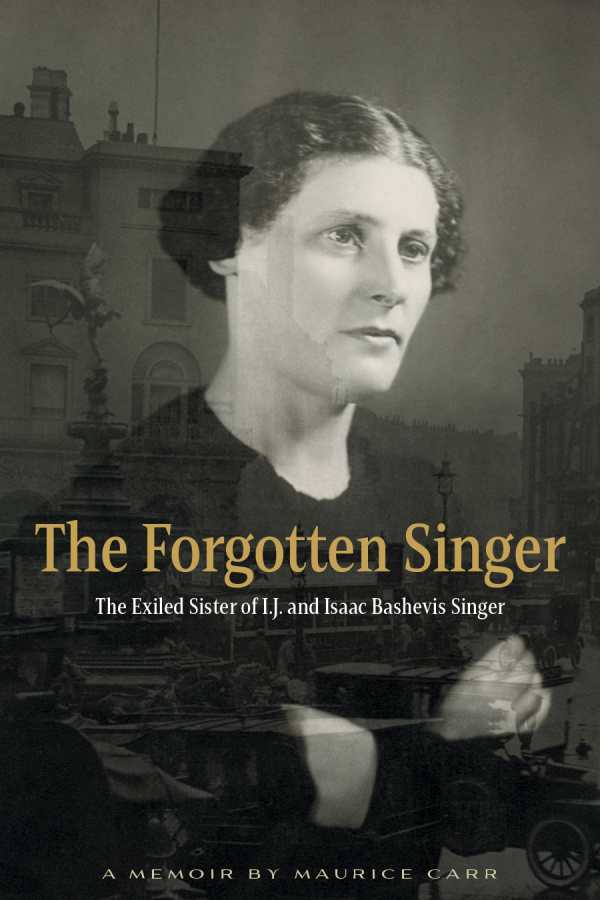The Forgotten Singer
The Exiled Sister of I. J. and Isaac Bashevis Singer
The Forgotten Singer tells the conflicted life story of the gifted, undercelebrated novelist Esther Singer Kreitman (the sister of I.J. and Isaac Bashevis Singer) from the viewpoint of her son, Maurice Carr.
Carr’s dark, brooding narrative begins during WWI in a London shelter for Jewish refugees from Antwerp. Then a boy more afraid of the rats scurrying in the dank basement than of German bombs, Carr was confused by the adults, who so needed to be perceived as “better-than” that they would dress in their finest clothes and jewels to hide underground.
Carr’s descriptions of his mother are not always laudatory. He depicts her as a formidable woman caught up in the chaos of war. He also notes that her considerable writing gifts were hidden in the shadows cast by the fame of her brothers. Her childhood in Poland was abysmal: she was rejected by her mother, who later destroyed her writings. Nonetheless, she was the first of the Singers to write a novel, and she had three novels published in Yiddish despite the constraints imposed upon women in her day.
Emotions smolder as the story focuses on the relationship between Kreitman and her son. While still a child, Carr witnessed one of Kreitman’s shocking epileptic fits and vowed to become his mother’s caretaker. But his marriage was overshadowed by her presence. And the book includes a troubling overview of Jewish life in Europe between the world wars, enlivened by Carr’s potent, multisensory descriptions, as of a woman whose “squat figure radiates the furious body heat of a childless woman without a bedmate.”
A son’s memoir written in penetrating vignettes, The Forgotten Singer is engaging in its intensity, even if it, like history, is sometimes too prone to consigning Esther Singer Kreitman to its background.
Reviewed by
Kristine Morris
Disclosure: This article is not an endorsement, but a review. The publisher of this book provided free copies of the book to have their book reviewed by a professional reviewer. No fee was paid by the publisher for this review. Foreword Reviews only recommends books that we love. Foreword Magazine, Inc. is disclosing this in accordance with the Federal Trade Commission’s 16 CFR, Part 255.

